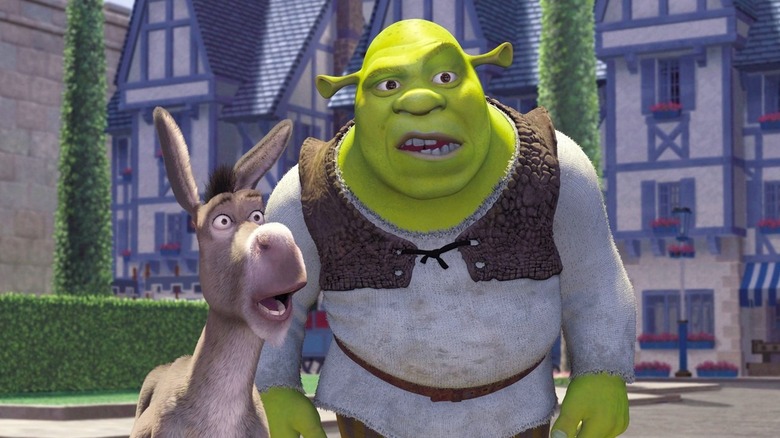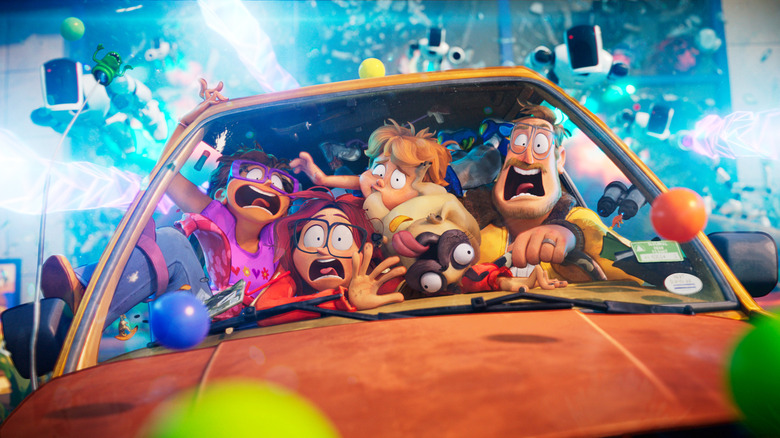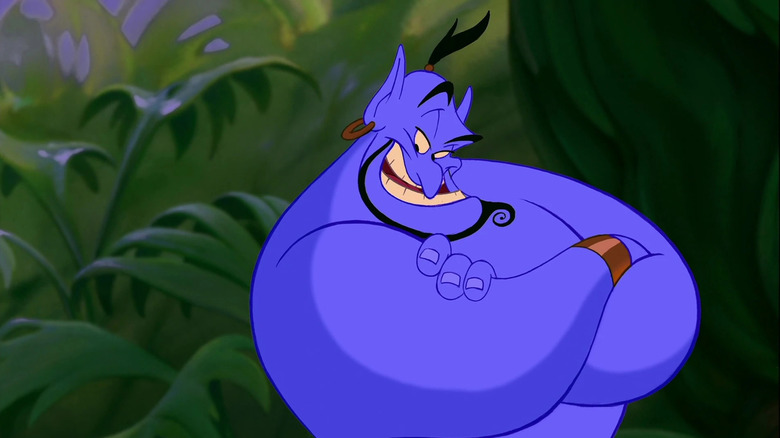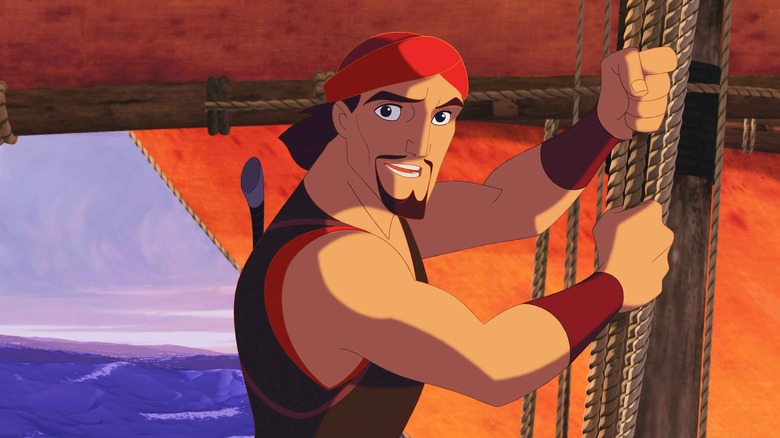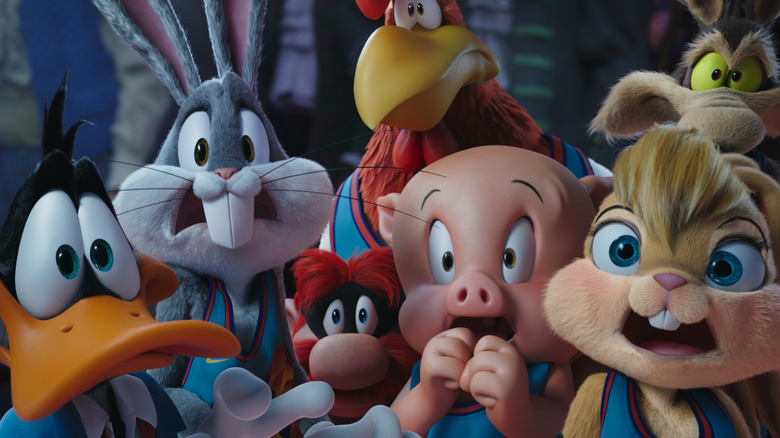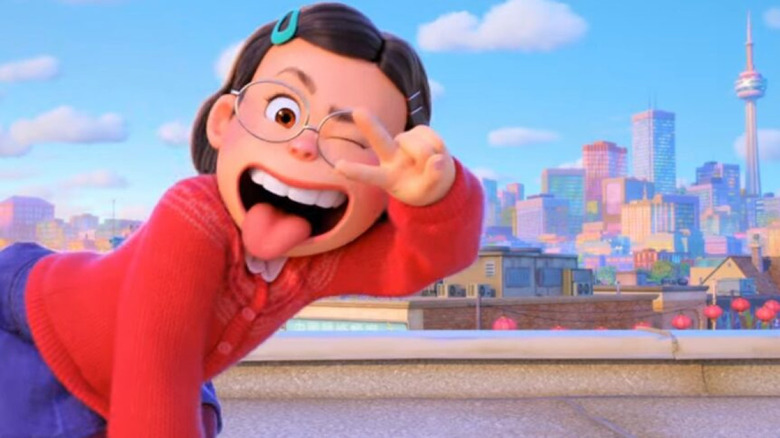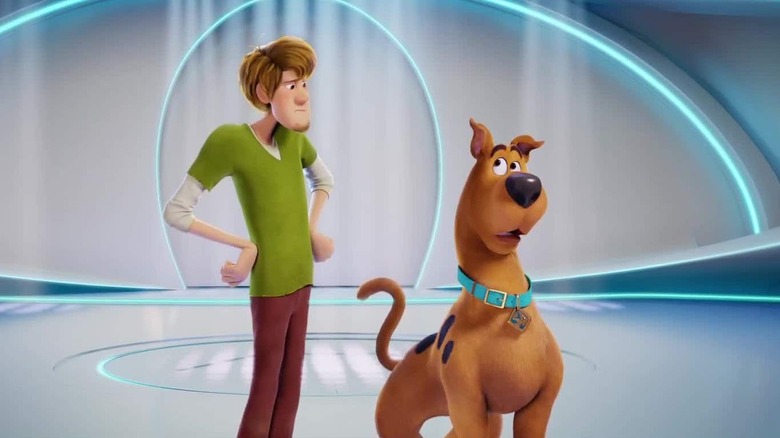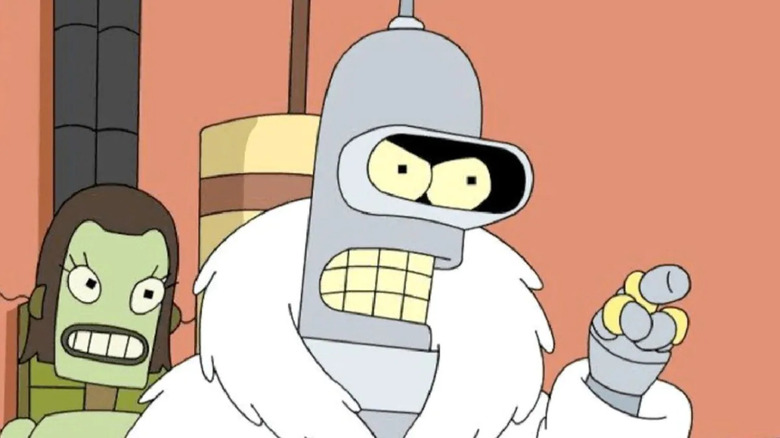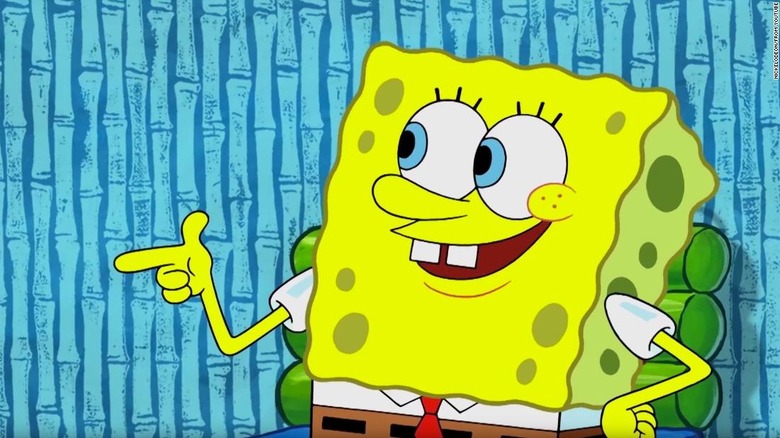Why Celebrity Stunt Casting Hurts Animated Movies — And How Hollywood Can Fix It
In September of 2021, Nintendo and Illumination Entertainment announced that they were finally going to make a feature-length animated movie based on the world of "Super Mario Bros." The film boasts a star-studded cast, including Charlie Day as Luigi, Anya Taylor-Joy as Princess Peach, Jack Black as Bowser, Keegan-Michael Key as Toad, Seth Rogen as Donkey Kong, Fred Armisen as Cranky Kong, Kevin Michael Richardson as Kamek, Sebastian Maniscalco as Spike, and Charles Martinet, who has been the sole voice of Mario for 30 years. But Martinet would not be voicing Mario himself.
No, the distinctive honor of bringing the animated Mario to the big screen will not be done by the most recognizable voice-over performer in video game history, but rather "Guardians of the Galaxy" and "Jurassic World" star Chris Pratt. I have not known peace since. The widespread irritation with Pratt being cast as Mario has little to do with his off-screen beliefs that have earned him the title of the internet's "least favorite Chris," and infinitely more to do with this decision being arguably the most egregious example of celebrity stunt casting since 2004's "Shark Tale."
Stunt casting is not merely the decision to cast an actor who happens to be a celebrity, but instead casting a celebrity, regardless of whether or not they are the best person for the job, solely because their name recognition or existing fanbase will hopefully generate ticket sales. We see it happen in live-action films all the time, like the decision to put John Travolta in the 2007 movie musical adaptation of "Hairspray," even though Broadway legend Harvey Fierstein was right there the whole time. But it has grown increasingly egregious in animated films over the years.
Not all celebrity voices are created equal
It's important to acknowledge that there are plenty of celebrity/crossover artists who are more than capable of delivering a quality voice-over performance. People often forget that Academy Award-winner J.K. Simmons has been doing voice-over work for decades, in roles like the Yellow Peanut M&M, Tenzin in "The Legend of Korra," Cave Johnson in "Portal 2," and most recently as the Lovecraftian glory hole in "Glorious." Alan Tudyk, Phil LaMarr, Mark Hamill, the entire cast of "The Mitchells vs. The Machines," the entire cast of "Inside Out," and countless others have all proven that a celebrity voice does not immediately equate to a "bad job." Was it a bit of stunt casting to have world's hottest man Idris Elba voice Knuckles the Echidna in "Sonic the Hedgehog 2"? Uh, yeah. Did Elba turn it out and do an absolutely fantastic interpretation of the character? Also yes.
Sometimes celebrity stunt casting works out, because there are plenty of ridiculously talented actors that understand the mechanics of how voice-over performance differs from live-action. There are even instances, like Dwayne Johnson in "Moana," where letting an actor perform in their natural speaking voice is the perfect casting decision. This doesn't even touch on the impact of casting comedians with naturally unique voices like Kristen Schaal and Jenny Slate, who have become beloved for their voice-over work.
The 'Genie' problem
Celebrity stunt casting has been a part of animated feature films since the very beginning, but the current state of centering an entire marketing campaign around a celebrity voice and therefore, planning a project around how to highlight said voice, really started with 1992's "Aladdin." Despite Robin Williams' request that the studio not use his name, voice, or image as a means to sell tie-in merchandising, Disney went back on their word, and his voice became synonymous with the film. "Aladdin" of course, was a massive hit for Disney, and solidified that the company was indeed having a renaissance, but Williams was so ticked off that there was a clause added to his will preventing them from using his name, taped performances, or voice recordings for 25 years after his death.
Williams' casting took place when producer Jeffrey Katzenberg was still at the company, so when he founded DreamWorks Animation, he took what he learned from "Aladdin" and immediately incorporated it into his productions. The first film, "Antz," starred an almost exclusively celebrity cast of well-known names like Woody Allen, Sylvester Stallone, Sharon Stone, Danny Glover, Gene Hackman, Jennifer Lopez, Dan Aykroyd, Christopher Walken, Jane Curtin, and Anne Bancroft.
"Antz" was a moderate success for the burgeoning studio, but nothing would compare to the merchandising juggernaut known as "Shrek," in which the voices of Mike Myers, Eddie Murphy, Cameron Diaz, and John Lithgow were integral to the film's marketing campaign, helping the film launch one of the most profitable animated film franchises in history.
The start of a trend backfiring
In the wake of the success of "Shrek," every animation studio quickly followed suit, shoehorning celebrities into their projects regardless of whether or not they understood how to successfully deliver a voice-over performance. Brad Pitt in "Sinbad: Legend of the Seven Seas" provides a laughably phoned-in performance. Tom Holland in both "Onward" and "Spies In Disguise" just sounds like Tom Holland being Tom Holland. And I'm not even going to open the Pandora's box that is Kim Kardashian in "PAW Patrol: The Movie." It's clear that execs and producers are worried that, without celebrity name recognition, a movie is at risk of not reaching as wide of an audience as possible.
This shuts out the backbone of the voice-over industry in the process.
There are countless performers with hundreds of voice-over credits across film, television, and video games that aren't household names, and this has nothing to do with their talent and everything to do with the way the industry undervalues voice-over performers. Unless studios start including their voice-over artists as selling points to their projects, the onus will always be on the voice-over artists themselves to market their participation, and fans to be the ones to figure out "Oh, snap, Grey DeLisle has voiced so many of my favorite characters." And it's frustrating, because even when studios are given the perfect opportunity to highlight voice-over artists, they miss the mark. Enter: "Space Jam: A New Legacy."
Dishonoring the dedication to the craft
When "Space Jam: A New Legacy" was on the promotional circuit, the discussions were almost exclusively centered on LeBron James, how the film would differ from the original, the parade of Warner Bros IP, and the casting of Zendaya as Lola Bunny. Voice-over legend Kath Soucie had been voicing the character for years, but was replaced at the last minute in an act of stunt casting. This is in no way shade toward Zendaya (who was recovering from that "MeeChee" meme debacle), but this executive-made decision was wildly disrespectful to the years Soucie has spent bringing the character to life. Even more infuriating was the fact that performers like Jeff Bergman, Bob Bergen, Candi Milo, Fred Tatasciore, and Eric Bauza — who voice the Looney Tunes – were treated like footnotes.
They kind of did. Though Eric Bauza will be the first to tell you Mel Blanc was irreplaceable and he’s lucky enough to have just a fraction of his talent, he’s also the modern voice actor who gets the closest to nailing the classic Mel Blanc scream. pic.twitter.com/B9U1r7D5K0 https://t.co/rGryx2wY94
— Ryan W. Mead (@rwmead) August 13, 2022
Last week, Eric Bauza was even trending on Twitter after someone lamented the loss of "unhinged Looney Tunes screams" in the years following the death of classic voice-over actor Mel Blanc, with many rightfully pointing out that Bauza, who currently serves as the voice of Bugs Bunny, is the closest thing we'll ever get to Mel Blanc 2.0. "Space Jam: A New Legacy" had the perfect opportunity to highlight their voice cast, many of whom had been voicing these characters for years, and completely squandered it. These performers could have been put in the spotlight and treated as a selling point. But no. We had to instead hear countless debates about the greatness of LeBron James and Michael Jordan ... again.
Turning Red got it right
Fortunately, sometimes studios do get it right. When director Domee Shi and producer Lindsay Collins were on the press tour for "Turning Red," the story behind how newcomer Rosalie Chiang was cast as the film's lead was a massive talking point. Shi offered Chiang the part in the middle of what she thought was just another temporary track recording, and this anecdote was part of their press day presentation. Pixar even released videos of Chiang talking about the experience, and it helped bolster a growing fandom for Chiang, who are now anxiously awaiting her next project. Sure, "Turning Red" was also smart by making sure Sandra Oh was included at the front of the marketing campaigns as an established household name, but Pixar never let the movie become "The Sandra Oh Show" — it was always "Turning Red," and the project was given the center focus.
This is a far cry from the release plans of "DC League of Super-Pets," which focused almost solely on the celebrity cast, namely Dwayne Johnson and Kevin Hart, to the point where I wasn't even sure what the film was about until a few days before it hit theaters, and it is literally my job to know what movies are about. There's plenty of good celebrity voice acting in that film (Natasha Lyonne as Merton McSnurtle in particular), but when the marketing is so heavily centered on the celebrities involved and not the actual content of the film, what faith are we supposed to have that the movie wasn't just made to make money off name recognition?
No one wants wrong-sounding Muppets
There's an old "Family Guy" joke from 2007 that gets quoted a lot in my friend group that has to do with "Wrong Sounding Muppets," a way to mock the way Muppet voices have noticeably changed since Disney acquired Jim Henson's beloved property in 2004. I think of this joke every time I watch an animated film and a celebrity's voice is just their speaking voice, especially if their voice is recognizable. Holly Hunter sounds a whole lot like Holly Hunter as Mrs. Incredible in "The Incredibles," but because we're not inundated with her voice 24/7 in commercials and celebrity guest spots, it's easy to immerse into the world of the film. It's a lot harder to do that when Kevin Hart pops up in every other animated release doing the exact same voice as his stand-up, his acting, and his Chase bank commercials.
It's even more distracting when a celebrity stunt cast happens for legacy characters, like every casting decision in "Scoob!" This isn't to say that those involved didn't try their hardest, but it was extremely distracting to listen to Will Forte and Frank Welker get into Scooby and Shaggy hijinks, knowing that Matthew Lillard wasn't asked to perform as Shaggy (a role he inherited after the success of the live-action "Scooby-Doo" movies and the passing of Casey Kasem), and that Frank Welker went to work every day to voice Scooby, but not Fred (which was given to Zac Efron). When dealing with already established and beloved characters, there's no need for a celebrity stunt cast. People who buy a ticket to see "Scoob!" are buying a ticket to see characters they already know inside and out. Throwing in big-name celebrities in favor of the people responsible for why audiences fell in love with the characters in the first place is a slap in the face to their tireless dedication to the art of voice-over.
Stop screwing with legacy characters
I can't help but think about what is going to happen after "The Super Mario Bros." comes out next year. Anyone on the planet who knows who Mario is knows what Mario is supposed to sound like, and it sure isn't the dude from "The Lego Movie." When Universal, Illumination, and Nintendo undoubtedly release Mario merchandise for the movie, will the Mario figures sound like Charles Martinet or will he sound like Chris Pratt? I'm sorry, but there's nothing more cursed or "Wrong Sounding Muppets" than imagining hitting a button on a Mario figure and not hearing "It's-a me, Mario!" but instead the voice of Chris Pratt.
It sounds like the plot of an episode of "The Twilight Zone" and I can't imagine anyone other than the people whose bottom line depends on the success of this film prefers Pratt to Martinet. Maybe I'm just being a hater. Maybe Pratt will surprise us all. But even if both of those things turn out to be true, it still doesn't change the fact that Charles Martinet not being the person to bring the character to the big screen after 30 years of work is unforgivable.
Update: #bendergate pic.twitter.com/tBG7d9hQ3R
— John DiMaggio (@TheJohnDiMaggio) February 16, 2022
When Hulu announced that they were rebooting "Futurama," veteran voice actor John DiMaggio was originally not set to return as Bender, and fans were enraged. "What's the point of rebooting the show without him?" was a common talking point, and many confessed they had no interest in watching the show without his involvement. Fortunately DiMaggio inevitably decided to join the reboot, but this should have been a huge wakeup call to studios everywhere. (And he was right, the cast ALL deserves higher pay.)
It's time for a change
Voice-over artistry is a difficult talent far beyond doing impressions that can make your friends laugh at parties, and it's truly maddening to see how inconsequential artists are often treated by the studio and network systems. At one point, the cast of "Friends" was getting paid a $1 million per episode, while Tom Kenny, who voices SpongeBob SquarePants, arguably the most popular and most recognizable cartoon character of the last 30 years, has an estimated net worth of only $16 million TOTAL. I know, I know, I shouldn't be getting defensive of millionaires, but the math ain't mathin' here.
Animated movies are already unfairly maligned by the Hollywood machine, and an entire overhaul of the industry needs to be made. Animators deserve to be paid fair wages, animated features need to be treated as the legitimate medium it is and not "just for kids," and voice-over artists deserve to be highlighted for their work by the people in control of the narrative. Unfortunately, there's no real incentive for those in power to make these changes, because the celebrity voice over machine is still keeping their pockets full, regardless of whether the film is any good or not. Voice-over artists have been the unsung heroes in the world of entertainment for far too long, and it's time for a change.
